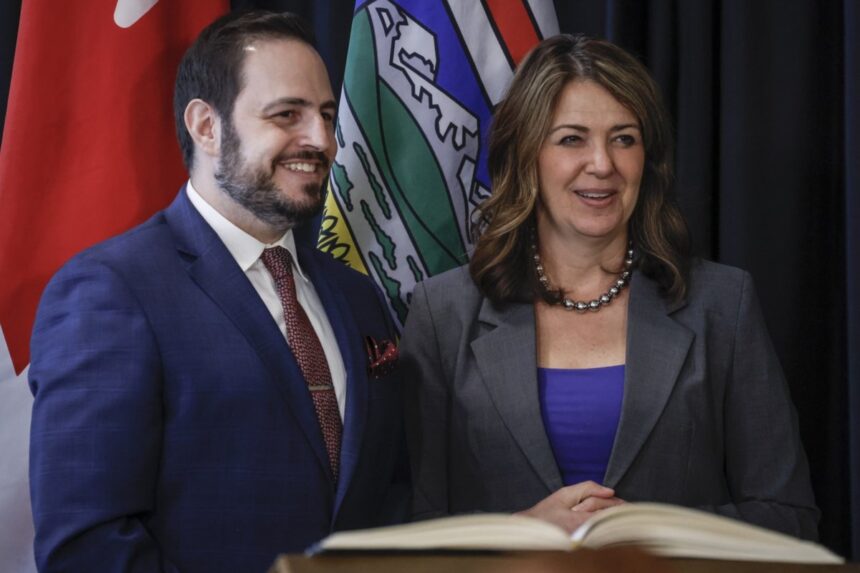I spent yesterday afternoon at the Edmonton Public Library’s Idylwylde branch, watching families browse shelves together while I researched this story. It struck me how differently our school libraries will look come autumn.
Alberta’s education system faces significant change as Education Minister Demetrios Nicolaides confirmed a province-wide ban on books containing sexually explicit content from school libraries. The restriction, announced Tuesday, takes effect October 1st, giving schools the summer months to review their collections and remove materials deemed inappropriate.
“Parents expect that when their children go to school, they’re going to be taught age-appropriate material,” Nicolaides told reporters in Calgary. “They expect that when their children go to the school library, they’re not going to be accessing sexually explicit material.”
The directive applies to all Alberta schools receiving public funding, including public, separate, charter, and private institutions. School authorities must establish internal processes to review their library collections before the October deadline.
What surprised many educators I spoke with wasn’t just the policy itself, but its specificity. The ministerial order defines “sexually explicit” as visual or written material describing or depicting nudity, sexual acts, or sexual violence in a detailed or graphic manner that lacks “serious artistic, literary, scientific, political or medical value for minors.”
Sarah Johnston, a librarian at an Edmonton junior high who asked me not to name her school, expressed concern about implementation. “The challenge is interpretation,” she said while we chatted over coffee at District Cafe. “What one person considers educational, another might find objectionable. We’re talking about thousands of books to review in just a few months.”
Parents’ reactions have been predictably mixed across Edmonton. At a recent school council meeting I attended in west Edmonton, discussions became heated. Mother of three Melissa Cheng supported the measure, telling the group, “I should have final say on what sexual content my children access, not a school librarian.”
Countering this view was James Wilson, parent of a high school student, who argued, “This feels like government overreach. Are we really going to remove books like ‘The Handmaid’s Tale’ because they contain difficult scenes? Literature is supposed to challenge us.”
The Alberta Teachers’ Association hasn’t formally responded to the announcement, but several Edmonton teachers have privately expressed worries about the policy’s implementation timeline and vague standards. One English teacher who requested anonymity questioned, “Does this mean ‘Romeo and Juliet’ gets pulled? What about biology textbooks?”
Critics point to similar policies in American states like Florida and Texas, where book bans have sometimes extended beyond explicitly sexual material to include LGBTQ+ themes and racial discussions. The Alberta School Councils’ Association has urged careful implementation to prevent overreach.
Edmonton Public Schools spokesperson Veronica Marshall confirmed to me yesterday that the district is “currently reviewing the ministerial order and developing plans to comply while maintaining diverse, inclusive library collections that support student learning.”
Provincial officials maintain that the policy targets only clearly inappropriate material. Nicolaides emphasized that books with educational value discussing human development, health, or sexuality would remain available. “We’re focused on content that serves no educational purpose,” he clarified.
For context, this directive follows months of advocacy from parent groups concerned about explicit materials in school libraries. Last fall, parents in Red Deer raised alarms about graphic novels they discovered in their children’s elementary school library.
The ban aligns with Premier Danielle Smith’s broader parental rights agenda, which includes controversial policies on gender identity in schools. Smith defended the library directive as “common sense protection” during a press conference in Edmonton last week.
As I walked through the children’s section at Idylwylde yesterday, watching a librarian help a young boy find dinosaur books, I wondered about the practical challenges ahead. School librarians across our city now face the daunting task of reviewing every book on their shelves against somewhat subjective criteria.
Dr. Elizabeth Morrow, education professor at MacEwan University, told me she worries about the chilling effect. “Even with the educational exemption, many schools might remove borderline books rather than risk controversy,” she explained during our phone conversation. “The result could be unnecessarily limited collections.”
Looking ahead, school boards must submit implementation reports to Alberta Education by December 15. The ministry plans to monitor compliance through random audits during the 2024-2025 school year.
For Edmonton families navigating these changes, Edmonton Public Library branches remain unaffected by the directive, providing alternative access to materials that might disappear from school shelves.
As our city’s schools prepare for these significant changes to their library collections, the conversation about balancing parental oversight, educational value, and student access to diverse literature continues – and likely will for some time to come.







